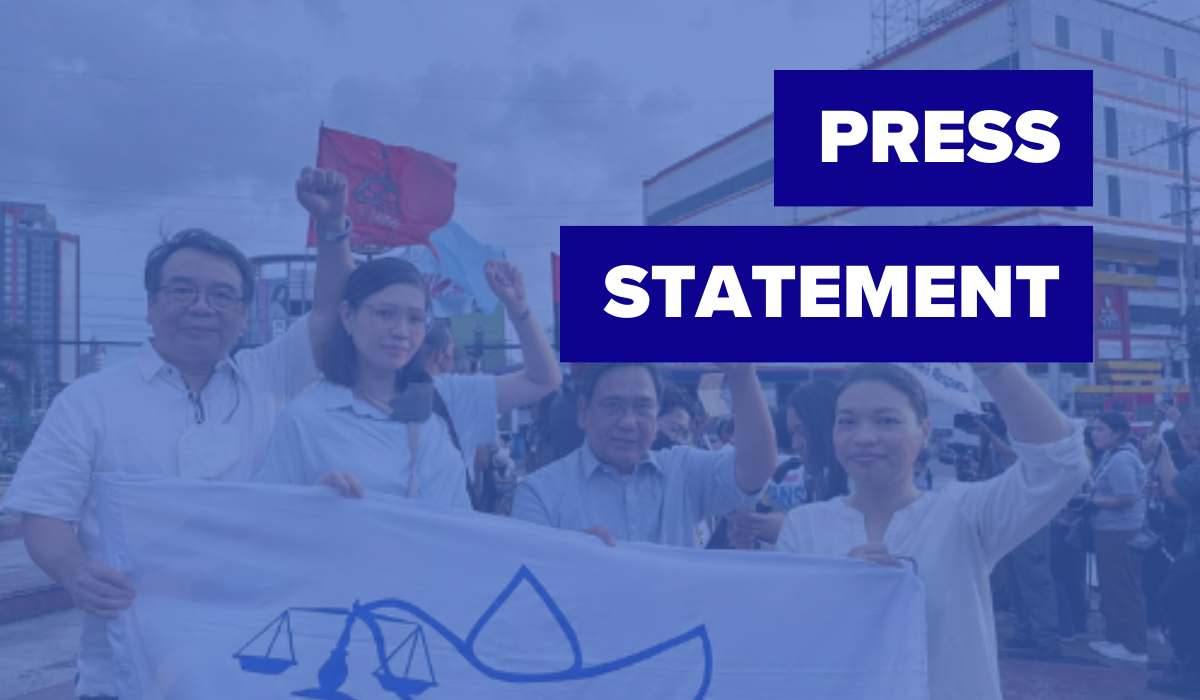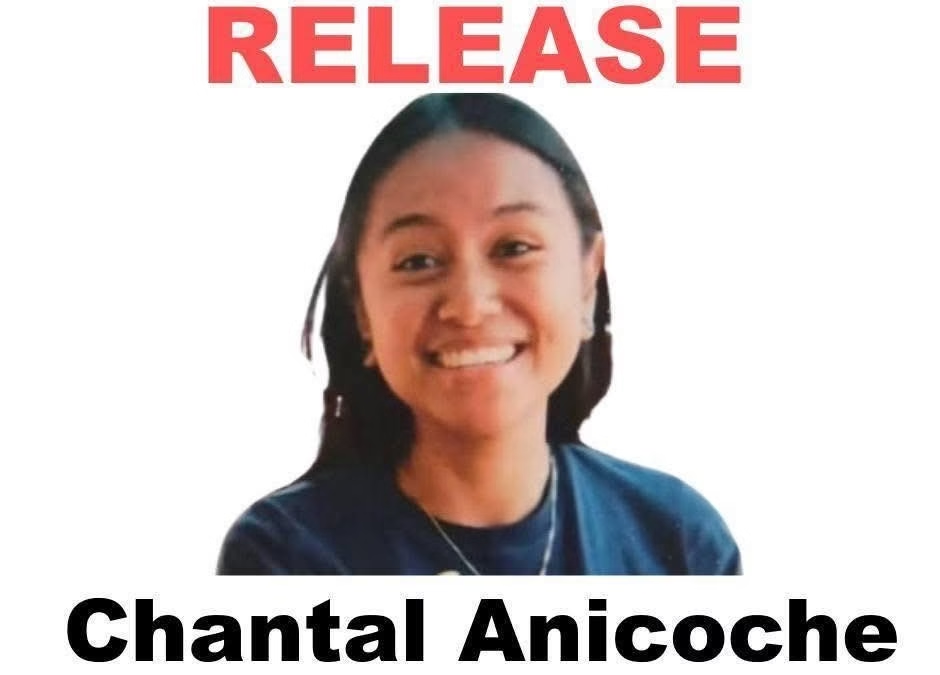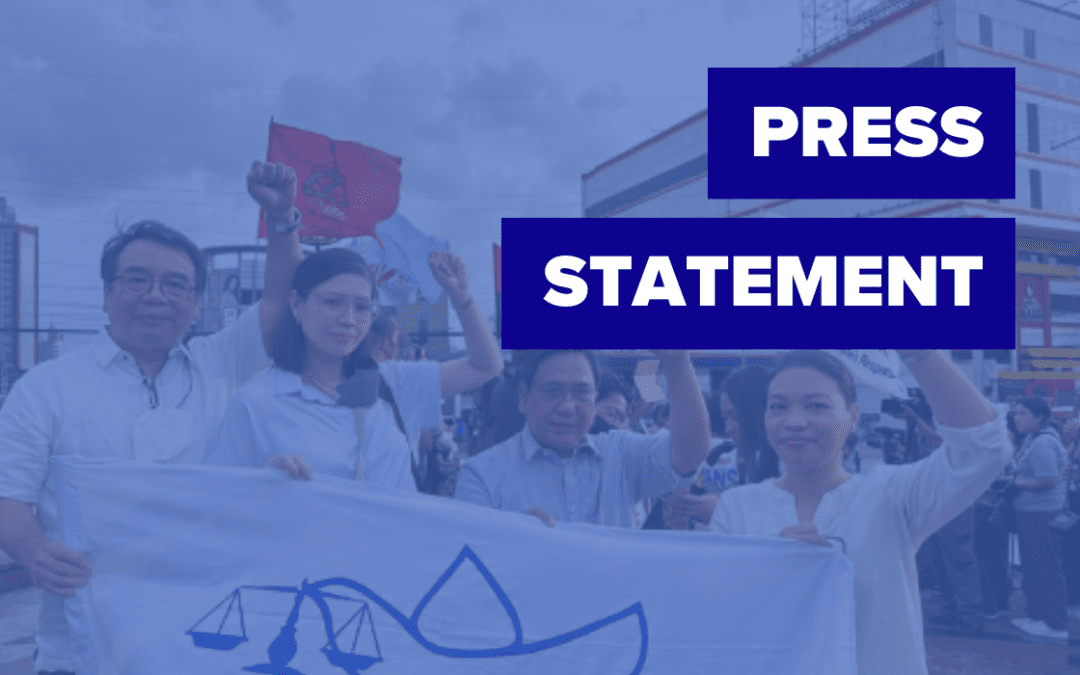July 26, 2025
The National Union of Peoples’ Lawyers (NUPL) expresses its grave concern with the Supreme Court’s recent unanimous ruling that nullified the impeachment of Vice President Sara Duterte. The Court’s decision, by introducing requirements alien to the text of the Constitution and misconstruing the sequence of constitutional procedures, raises troubling implications for checks and balances and accountability under the 1987 Constitution.
Under Article XI, Section 3 of the 1987 Constitution, the House of Representatives has two distinct and equally valid modes of initiating an impeachment complaint: (1) through referral of a verified complaint to the Committee on Justice (Sec. 3(2)); or (2) through direct filing by at least one-third of the members of the House, which automatically becomes the Articles of Impeachment (Sec. 3(4)).
In this case, four impeachment complaints were filed against Vice President Duterte. While the first three were included in the Order of Business, they were never referred to the Committee on Justice. In contrast, the fourth complaint, signed by more than one-third of House members, was adopted by the plenary and transmitted to the Senate on February 5, 2025, before Congress adjourned at the end of the same day, and in strict accordance with Section 3(4). This act, constitutionally, initiated the impeachment process.
The Supreme Court, however, concluded that the earlier complaints — despite never being referred to the Justice Committee and thus never initiated — were somehow “deemed dismissed” after the adjournment of the 19th Congress, thus triggering the one-year bar on initiating new impeachment proceedings. This, we respectfully believe, is a misreading of the impeachment timeline and a misapplication of the Constitution.
Initiation under Section 3(2) requires two elements: filing and referral to the Committee on Justice. The first three complaints failed this constitutional test. As they were not referred, none of them was initiated — and without initiation, there can be no dismissal. Archiving or congressional adjournment does not cure this constitutional deficiency. To treat unacted, unreferred complaints as having been “initiated and dismissed” is to grant legal effect to what the Constitution does not recognize. In effect, the Supreme Court has conjured a bar from proceedings that never began.
This is not the first time the power of impeachment has been tested before the Court. In Francisco v. House of Representatives (2003), the Court ruled that the one-year bar under Article XI, Section 3(5) was triggered only upon proper initiation of complaints under Section 3(2) — meaning referral to the Committee on Justice. This ruling upheld both the letter and spirit of the Constitution: to prevent harassment through multiple impeachment complaints while respecting the House’s exclusive prerogative to initiate them.
The current ruling departs from Francisco. By treating unacted complaints as if they were fully initiated and dismissed, the Court ignores the constitutional role of referral to the proper committee in ensuring that they undergo scrutiny before they trigger impeachment proceedings.
The Court further held that the House erred in not furnishing Vice President Duterte with the Articles of Impeachment or giving her the opportunity to respond prior to transmittal. But this is nowhere required under Section 3(4). The Constitution is explicit: once a complaint is filed by one-third of House members, it “shall constitute the Articles of Impeachment, and trial by the Senate shall forthwith proceed.” The Vice President’s opportunity to respond is preserved before the Senate, acting as an impeachment court, as it always has been in our constitutional practice.
While the Judiciary has the mandate to interpret the Constitution, this ruling ventures into the internal prerogatives of the House of Representatives, including how and when it chooses to exercise its exclusive power to initiate impeachment. Such discretion belongs solely to the political branch. Judicial review must remain vigilant, but restrained; interpretive authority must not evolve into administrative oversight over a co-equal branch. The delicate balance of powers must be carefully maintained. Any departure from this equilibrium, however well-intentioned, risks disrupting the constitutional order.
That the decision regrettably benefits the Vice President, an official long shielded by influence and political patronage, will not escape public scrutiny. After all, the Constitution was never intended to insulate the powerful from consequence. It was written precisely to prevent the return of impunity and the defeat of truth and justice.
We reiterate, with due respect to the Honorable Court: constitutional powers must be preserved, especially in the service of accountability. When these powers are subordinated to procedural interpretations that strain the Constitution’s plain meaning, it is not merely institutional balance that suffers—it is the public’s right to demand responsibility from those who wield power in their name. The people will remember what was lost in the process: a clear invocation of the people’s right to hold even the highest officials to account. ###
Reference:
Atty. Ephraim B. Cortez
NUPL President
+639172092943




